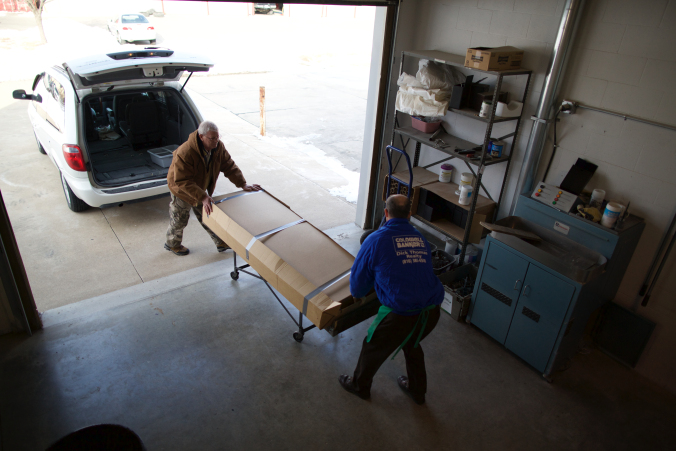County has options for poor deceased

Story by Erin Sastre.
COLUMBIA — For many people, funerals are an opportunity to celebrate the life of a loved one. But with the cost of a traditional funeral averaging between $7,000 to $10,000, some mourners may be too busy worrying about how they will pay the bill.
According to the U.S. Census Bureau, 20 percent of Boone County citizens live below poverty level. For the destitute, death brings no relief.
County officials have been setting aside money to help pay the cost of burying or cremating indigent residents since at least 1987, according to county records.
A bill in 2007 revised the policy — cremation now is the only option — and increased the budget allowance, setting the rate at $250 for adults and children to account for increased expenses. Since 2009, a total of $5,000 is budgeted for the service countywide.
The process involves both private and public agencies. When someone who may be impoverished passes away, his or her body is sent first to the medical examiner’s office or morgue. There, any known next of kin are contacted to claim the body.
“Some are here for as long as they can so family can come claim them,” said Stacey Huck of the Boone County medical examiner’s office.
If no one claims the body or no family members are found, the county works with funeral homes in the Boone County area to provide services.
“After 30 days, bodies are considered county property, and we provide a death certificate and cremation,” said Clay Vogl, manager and funeral director at Parker Funeral Service in Columbia.
The next — and often final — stop is the medical examiner’s office.
“The remains are sent back to our office if they aren’t claimed,” Huck said.
In rare circumstances, family members who were not aware an indigent resident’s death are able to petition the medical examiner for possession of the remains, she said. But some are never claimed.
“We have several cremated remains (in storage),” she said. “Thirty, if not more.”
When remains go unclaimed, they haven’t necessarily been forgotten, Huck said.
“It’s more likely that family is unwilling or unable financially to claim remains,” she said. “Typically, if a family doesn’t pay, if someone said, ‘We can’t take care of the cost’… the remains will stay in this office indefinitely.”
A county cremation isn’t the only option for financially unstable families, however. Other programs and businesses provide economic options for laying loved ones to rest.
MU’s Gift of Body program offers free cremation of bodies that are donated for study by students in the Department of Pathology and Anatomical Sciences. The program allows residents — including those who might lack the resources to pay for a traditional funeral — to provide for their own cremation or that of a loved one while contributing to the advancement of medical science.
Military veterans have another option. Many service members qualify for a free gravesite and a government-provided headstone at one of 131 national cemeteries or a state veterans’ cemetery in the state where the veteran lived at the time of death.
Private funeral homes also may offer discounted services to those in need or help tailor a funeral to match a limited budget.
“The service price depends on the needs and means of the families,” said Vogl. “We try to work with them as best as we can.”